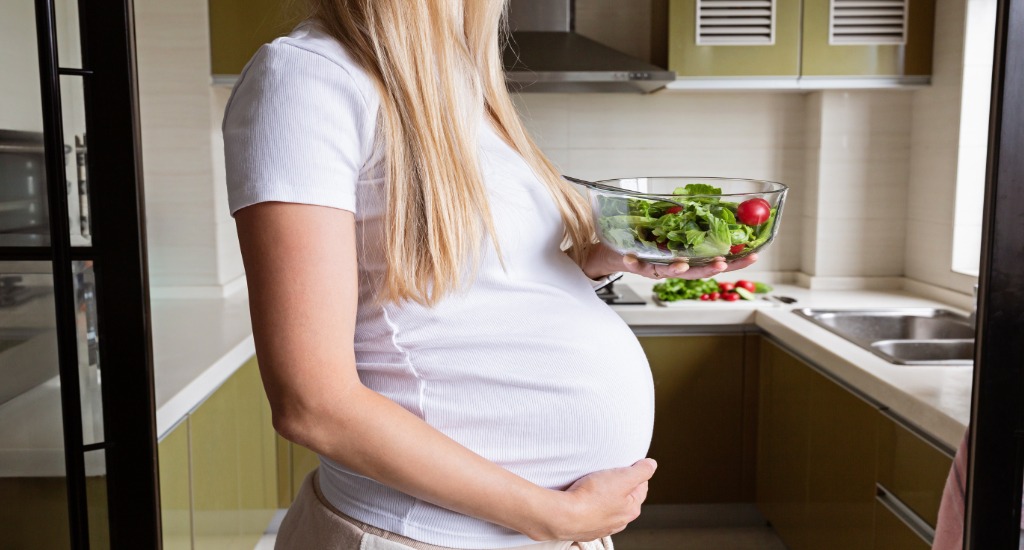Pregnancy is an event in a women’s life that involves changes in psychological and hormonal factors. It is also a time when a woman is more vulnerable to the development of mental disorders, especially depressive disorders. During pregnancy, diabetes and depression may have adverse effects on both the infant and mother. Risks in cases of diabetes include the possibility of abortion, stillbirth, preterm delivery, congenital malformations, neonatal respiratory distress, obesity, childhood insulin resistance, later-life type-2 diabetes, and much more. Depression during pregnancy, on the other hand, is related to poorer maternal health, preterm birth, and neonatal complications. Depression may also be associated with issues right after birth, such as insufficient child care, lower breastfeeding rates, etc.
The two disorders that partially overlap are diabetes and depression, but they are not the same phenomenon. The results indicate that depression and gestational diabetes may coexist and that having gestational diabetes may increase a woman’s risk of postpartum depression. Nowadays, telehealth is a great way to discuss your pregnancy-related problems and through online consultation, you can share your history or current complications. It is one of the best ways of consultation if not an emergency so that you don’t have to go to the doctor’s clinic and keep waiting for your turn to come.
Diabetes anxiety refers to diabetes and its effects on everyday life, whereas depression includes general symptoms such as mood complaints and anhedonia, a term that describes the lack of deriving pleasure in common pleasurable things. A rising number of pregnancies worldwide are affected by diabetes. A few years back, data showed that hyperglycemia during pregnancy affected almost 21 million births (which is 16%). Around 15% of these births included mothers with pre-existing or newly diagnosed type 1 or type-2 diabetes, with Gestational Diabetes Mellitus (GDM) being the remaining 85% to 90%. As the type 1 and type 2 diabetes frequencies are increasing in the general population, the number of pregnant women affected by diabetes is also increasing.
Gestational Diabetes during pregnancy:
Diabetes that arises during pregnancy is known as gestational diabetes. When a person has diabetes, their body is unable to appropriately control blood sugar levels. There are 2 types of gestational diabetes in women which are A1 and A2. Class A1 diabetes can be controlled through exercise and diet while in class A2 type cases need to take insulin or medicines. Around 7 months, a woman’s pregnancy is usually tested for gestational diabetes which disappears after giving birth. However, it can affect the health of your infant, and it increases the chances that you will develop type-2 diabetes later in life.
What causes gestational diabetes? Insulin is a hormone produced in the pancreas that controls the fat and carbohydrate metabolism of the body and helps the body convert sugar into energy. Gestational diabetes arises as the placenta’s hormones block the insulin, preventing the body from efficiently controlling the elevated blood sugar levels associated with pregnancy. It is called hyperglycemia, as glucose builds up in the blood. Whatever the reason, you should consult a gynecologist online to formulate a strategy for a safe pregnancy and delivery.
Symptoms of gestational diabetes are usually absent in women. During regular pregnancy screenings, most women discover that they have gestational diabetes. Below symptoms will start showing if your diabetes is out of control which is very rarely though:
- Drinking more and more water or feeling thirsty.
- Increase in hunger and eating more food than normal.
- Urinating more than on normal days.
Following measures can lower the risk of gestational diabetes:
- Try not to increase weight before or during the pregnancy.
- Plan your exercise through online consultation with your doctor.
- Maintain a balanced diet.
- Don’t consume drugs/medicines that can worsen insulin resistance. With the help of telehealth, you can consult a doctor at your home to confirm if this medicine can increase the risk of diabetes.
Depression during pregnancy:
Depression is a medical illness that induces feelings of sadness and a lack of interest in things you want to do. If you consult a psychiatrist online at an early stage then they can help you overcome this or how to control it. Perinatal depression is depression that develops during pregnancy or in the initial year after giving birth. It is one of the most common pregnancy-related medical complications involving postpartum depression, which is depression that occurs during pregnancy. If you are depressed, you will not take care of yourself the way you should, which will affect your child.
You must be thinking that the moments during pregnancy are the ones to cherish but chemical changes in the brain and hormonal changes can cause anyone to feel depressed. Hormones are natural chemicals produced by the human body. Those portions of the brain that are in control of emotions and mood can be influenced by certain hormones. Depression can also be caused by genes if there is a history of depression in the family. You should share your history and family background with a psychiatrist online if you have symptoms of depression.
If you don’t get treatment for your depression, you might not get the best prenatal care, eat the right foods for your infant, or have the stamina to look after yourself. You’re probably more likely to experience postpartum depression and have trouble bonding with your infant. Online consultation with a psychiatrist for treatment options might be a great way that can involve psychotherapy or medicines supporting psychotherapy, depending on the nature of the depression.
During pregnancy, some risk factors for depression include:
- Impatience
- Feeling stressed out
- History of depression
- Lacking social support
- Unplanned or forced pregnancy
- Victim of domestic violence
Depression symptoms during pregnancy:
- Over possessive about your baby.
- Low confidence related to parenthood.
- Failure to enjoy normally pleasurable activities.
- Not following prenatal care procedures properly.
- Consuming alcohol or smoking.
- Increase in weight due to poor diet.
- Suicidal thoughts.
Even after correcting for risk factors for postpartum depression, women with diabetes have almost double the likelihood of being diagnosed with depression or taking antidepressant medication in the months following birth. Hormonal changes that arise with diabetes have also been suggested to worsen the hormonal changes that follow pregnancy, which is why pregnant women particularly are prone to depression.
To conclude, most of the researches shows that in women with Gestational Diabetes Mellitus, diabetes discomfort is of significance and that is linked to adverse outcomes of pregnancy. In terms of the clinical consequences, online gynecologists must be aware of diabetes discomfort and discuss it with their patients. One good strategy is to have a discussion with other group members in addition to consulting a psychiatrist online or a gynecologist one on one.













